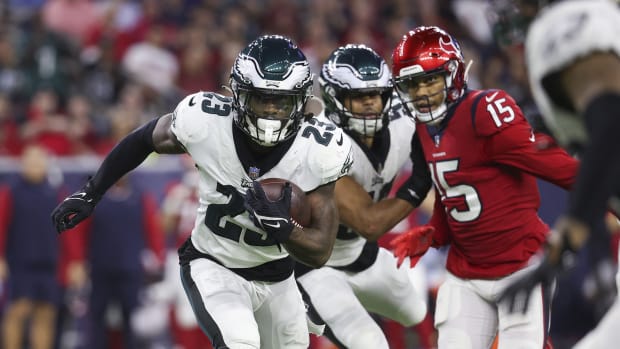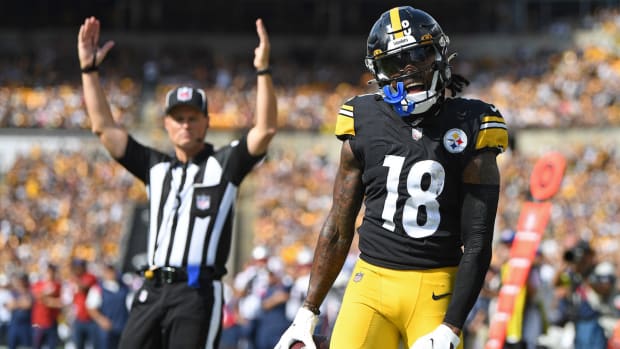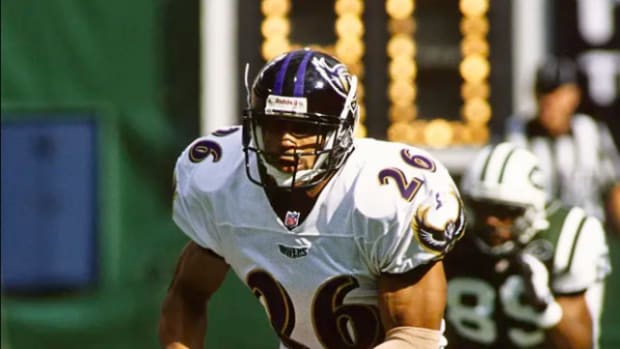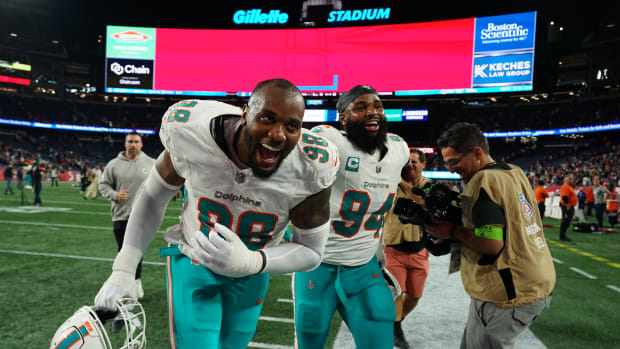Tyreek Hill’s Verbal Threat Should Have Warranted an NFL Suspension
When the Chiefs report to training camp next Friday, Tyreek Hill will be there. The star receiver will be allowed to practice, and he will enter the 2019 season without any penalty for the child-abuse investigation or the threatening comments he made to the mother of his three children, Crystal Espinal, on a secret audio recording this offseason.
The NFL announced its decision Friday morning, stating that, “based on the evidence presently available, the NFL cannot conclude that Mr. Hill violated the Personal Conduct Policy.” The end of the statement left the door open for discipline “if further information becomes available through law enforcement, the pending court proceeding, or other sources.” NFL investigator Lisa Friel interviewed Hill for 8.5 hours in Kansas City in late June; the MMQB’s Albert Breer reports that the league made multiple attempts to interview Espinal, but she did not participate.
This case was always going to be a complicated one for the NFL to adjudicate—as many domestic violence cases are—because it was a complicated one for the district attorney to adjudicate. In April, Johnson County District Attorney Steve Howe announced he would not press charges against Hill or Espinal for abuse of their young son. Howe added that “we believe a crime has occurred,” but the evidence did not “conclusively establish who committed the crime against this child.” Hill has denied these child-abuse allegations, calling them false in a statement he tweeted. The NFL said that its understanding is that the boy, who turned four this month, is safe and that his care is being directed and monitored by the Johnson County District Court and the Johnson County Department for Children and Families.
The NFL labeled its investigation “comprehensive,” but the statement makes clear that league investigators were not privy to all of the information surrounding the case. The NFL’s personal conduct policy states that it will make an effort not to interfere with local authorities’ investigations. In this case, the information the NFL was not able to obtain included the court proceedings, which are confidential, and the law enforcement records, which have been sealed. Regarding the abuse investigation, the NFL defaulted to the decision made by local authorities.
But what about the audio recording, in which Hill can be heard telling the woman he plead guilty to abusing in a 2014 assault, “You need to be terrified of me, too, dumb b----”? This threat, which Hill has admitted he made, constitutes a violation of the personal conduct policy as it is written. The first item in the policy’s list of prohibited behaviors is “actual or threatened physical violence against another person.” Last year, Ravens cornerback Jimmy Smith was suspended four games by the NFL for “evidence of threatening and emotional abusive behaviors … that showed a pattern of improper conduct.” This is one example of how players who may not face criminal charges can still be subject to league discipline.
The NFL’s statement regarding its decision did not address Hill’s threat. Asked to provide clarity as to why the recorded threat did not result in punishment for Hill, league spokesperson Brian McCarthy said it was viewed in the context of the full audio recording in addition to evidence gathered through the league's four-month investigation, which included speaking with family members on both sides and other electronic information from before and after the recording, as Pro Football Talk first reported.
The 11-minute audio recording, which Espinal secretly taped on a trip to Dubai with Hill in March and sent to a friend for safekeeping, was partially aired by a Kansas City TV station in April and released in full by a local radio station earlier this month. (The NFL had access to the full audio since April.) During the recording, Espinal asks Hill why their son says “Daddy did it,” regarding his broken arm, and says that the boy is terrified of him. That’s when Hill replies that she needs to be terrified of him, too. They also accuse each other of using a belt to discipline their son.
In the portion of the recording that was previously unreleased to the public, Hill denies abusing Espinal in 2014, when they were students at Oklahoma State, and accuses Espinal of lying and ruining his life. Espinal, who was then eight weeks pregnant with their son, told police Hill punched her in her face and stomach, busted her lip and choked her. According to the Stillwater Police Department incident report, the responding police officer observed bruises and markings in the areas she had described. Hill pleaded guilty in 2015 to domestic assault and battery by strangulation, signing a statement in which he acknowledged that he “wrongfully” put her in a headlock and compressed her airway, causing bodily injury.
When the Chiefs selected Hill in the fifth round of the NFL draft in 2016, the team defended its decision by explaining that Hill was remorseful for his actions, would continue to be in counseling and was trying to “right the wrong.” In his second meeting with local reporters, Hill apologized for “my mistake,” saying, “I did something wrong. I just let my emotions get the best of me, and I shouldn’t have did it.” Chiefs coach Andy Reid said at the time that he believed there would be a positive end. The remorsefulness that the Chiefs stated as a factor in their taking a chance on Hill three years ago stands in stark contrast to Hill’s comments on the audio recording, in which he blames Espinal for his assault and battery conviction.
The Chiefs will have their most explosive player, the one they were in talks with for a mega contract extension early this offseason, back in the fold for the 2019 season. But while the NFL chose to not suspend him, let’s be clear about what the statement does not say: It does not say that it has all of the information about the child-abuse investigation and the crime the D.A. believes was committed against Hill's son. And the it does not directly address why a player, who previously plead guilty to assault and battery by strangulation against the mother of his children, was not disciplined for telling her, “you need to be terrified of me, too, dumb b----.”
Question or comment? Email us at talkback@themmqb.com.




































